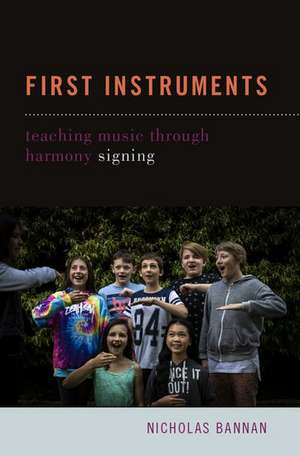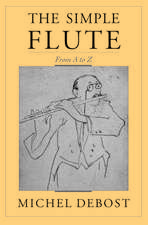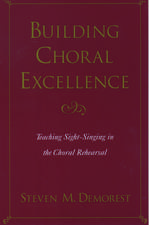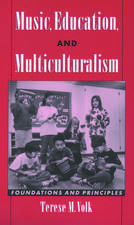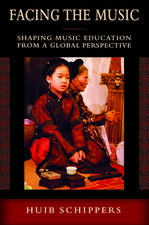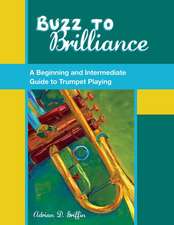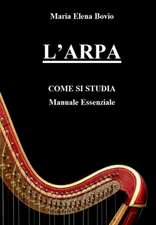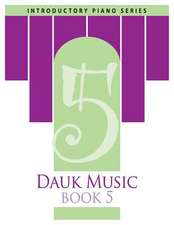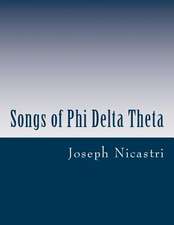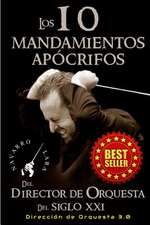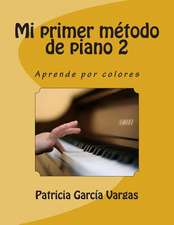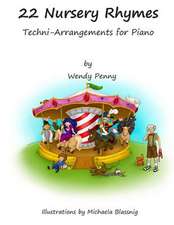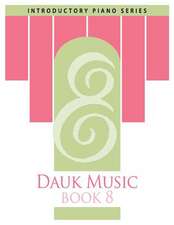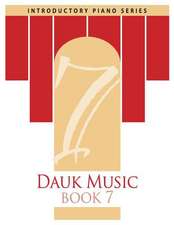First Instruments: Teaching Music Through Harmony Signing
Autor Nicholas Bannanen Limba Engleză Paperback – 15 noi 2019
| Toate formatele și edițiile | Preț | Express |
|---|---|---|
| Paperback (1) | 164.50 lei 10-17 zile | |
| Oxford University Press – 15 noi 2019 | 164.50 lei 10-17 zile | |
| Hardback (1) | 548.88 lei 31-38 zile | |
| OUP USAOUP USA – 15 noi 2019 | 548.88 lei 31-38 zile |
Preț: 164.50 lei
Preț vechi: 189.09 lei
-13% Nou
Puncte Express: 247
Preț estimativ în valută:
31.48€ • 33.66$ • 26.24£
31.48€ • 33.66$ • 26.24£
Carte disponibilă
Livrare economică 17-24 martie
Preluare comenzi: 021 569.72.76
Specificații
ISBN-13: 9780190932053
ISBN-10: 0190932058
Pagini: 240
Ilustrații: 40 photos; 212 illus.
Dimensiuni: 251 x 175 x 15 mm
Greutate: 0.43 kg
Editura: Oxford University Press
Colecția OUP USA
Locul publicării:New York, United States
ISBN-10: 0190932058
Pagini: 240
Ilustrații: 40 photos; 212 illus.
Dimensiuni: 251 x 175 x 15 mm
Greutate: 0.43 kg
Editura: Oxford University Press
Colecția OUP USA
Locul publicării:New York, United States
Recenzii
Bannan steps forward here with the first modern, comprehensive, and practical guide to the art, science, and history of music as an essentially vocal art. This is a mine of knowhow that will serve generations of young musicians, and the composers, performers, and researchers responsible for leading them from instinct to expertise.
Community and creativity lie at the heart of human musicality. In this new book, Bannan delivers an excellent guide for anyone interested in exploring the power of gesture to educate and develop diverse musical skills in young and old.
No, that's not a misprint! Harmonic signing is a brilliant and original method for teaching singing and musicianship, based on our ancient, universal nature as human vocalizers and responders. From simple games and tasks to mastering Flamenco or the Phrygian mode, Bannan's rich, well-thought-out pedagogy avoids language and notation yet develops instinctive musicianship and expressivity through gesture and collective interaction.
Community and creativity lie at the heart of human musicality. In this new book, Bannan delivers an excellent guide for anyone interested in exploring the power of gesture to educate and develop diverse musical skills in young and old.
No, that's not a misprint! Harmonic signing is a brilliant and original method for teaching singing and musicianship, based on our ancient, universal nature as human vocalizers and responders. From simple games and tasks to mastering Flamenco or the Phrygian mode, Bannan's rich, well-thought-out pedagogy avoids language and notation yet develops instinctive musicianship and expressivity through gesture and collective interaction.
Notă biografică
Nicholas Bannan is Associate Professor of Music and the University of Western Australia Conservatorium of Music. His earliest musical experience was as a chorister at Canterbury Cathedral, after which he went on to the King's School, where he played violin and viola and composed. Study at Cambridge University, where he was a Choral Exhibitioner at Clare College under John Rutter, led to a career that combined performing, composing and teaching in schools and universities, and as a community musician. Prof. Bannan has developed a reputation for collaborative projects, both within and outside the education sector, including the creative partnership Compose Yourself! He has made a leading contribution to the establishment internationally of the significant new sub-discipline of Evolutionary Musicology, and has taught and published in the field of Teaching and Learning in Music arising from projects both in pedagogy and in reflective practice methodology. His performance experience includesprofessional choral and orchestral conducting, with special interests in early music, the 20th century, and new music. Formally conductor of The Esterhazy Singers in London, he now directs The Winthrop Singers of UWA and is on the music staff of St Mary's Cathedral, Perth. Prof. Bannan has taught at Eton College; Desborough School, Maidenhead; The Yehudi Menuhin School; the London College of Music; and Oxford Brookes and Reading Universities in the UK.
